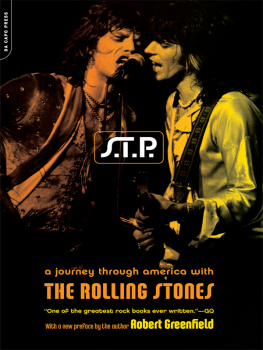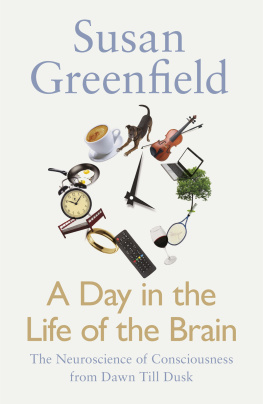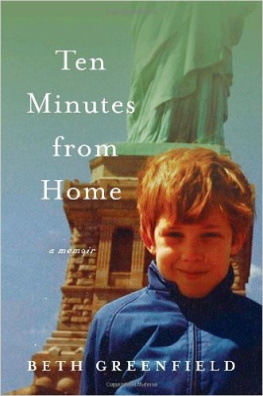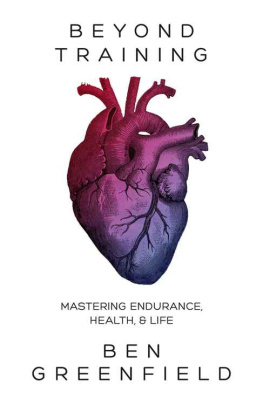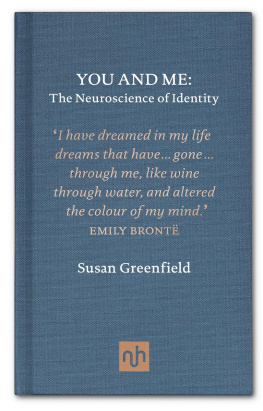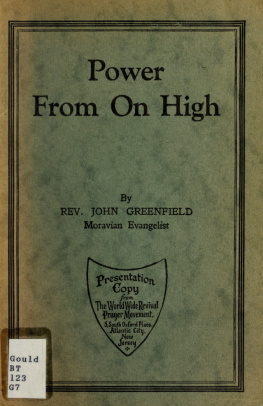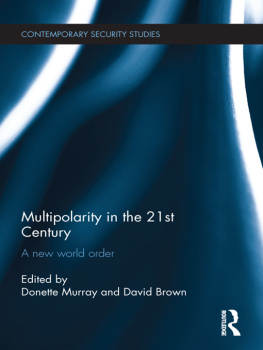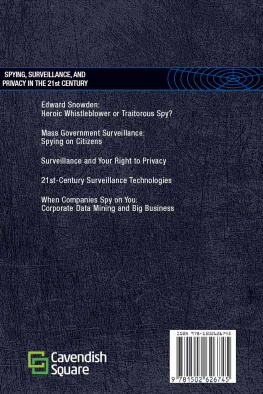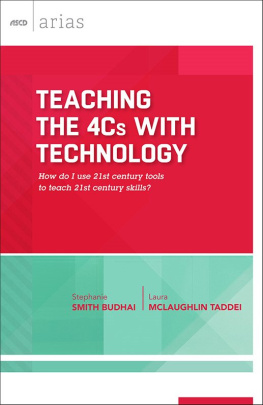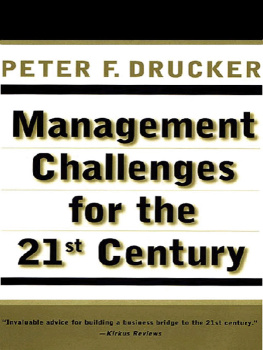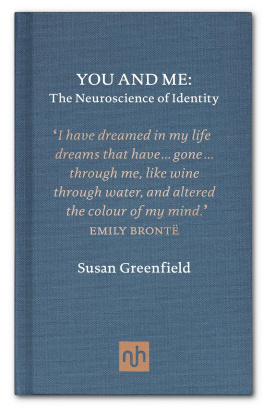PENGUIN BOOKS
TOMORROW'S PEOPLE
Baroness Greenfield, CBE, is a distinguished neuroscientist, broadcaster, writer and bestselling author of The Private Life of the Brain (Penguin) and The Human Brain: A Guided Tour. She is Professor of Pharmacology at Oxford and Director of the Royal Institution of Great Britain.
SUSAN GREENFIELD
Tomorrow's People
HOW 21ST-CENTURY
TECHNOLOGY IS CHANGING
THE WAY WE THINK AND FEEL
PENGUIN BOOKS
PENGUIN BOOKS
Published by the Penguin Group
Penguin Books Ltd, 80 Strand, London WC2R 0RL, England
Penguin Group (USA) Inc., 375 Hudson Street, New York, New York 10014, USA
Penguin Books Australia Ltd, 250 Camberwell Road, Camberwell, Victoria 3124, Australia
Penguin Books Canada Ltd, 10 Alcorn Avenue, Toronto, Ontario, Canada M4V 3B2
Penguin Books India (P) Ltd, 11 Community Centre, Panchsheel Park, New Delhi 110 017, India
Penguin Group (NZ), cnr Airborne and Rosedale Roads, Albany, Auckland 1310, New Zealand
Penguin Books (South Africa) (Pty) Ltd, 24 Sturdee Avenue, Rosebank 2196, South Africa
Penguin Books Ltd, Registered Offices: 80 Strand, London WC2R 0RL, England
www.penguin.com
Published by Allen Lane 2003
Published in Penguin Books 2004
Copyright Susan Greenfield,2003
All rights reserved
The moral right of the author has been asserted
Except in the United States of America, this book is sold subject to the condition that it shall not, by way of trade or otherwise, be lent, re-sold, hired out, or otherwise circulated without the publisher's prior consent in any form of binding or cover other than that in which it is published and without a similar condition including this condition being imposed on the subsequent purchaser
ISBN: 978-0-14-192608-7
Contents
Preface
This book should really have been a novel. Like many, I had often fantasized about conveying a stream of thoughts and insight effortlessly through my fingertips, of telling a story where I myself didn't know the outcome, and writing of characters who developed independent lives and minds of their own. Novel-writing had appeal not just as a means of letting one's mind range free but also because it could do so without all the checks and balances of argument and reference, the meticulous research and fact-checking, that characterizes non-fiction books of the type that I had previously written on the brain. Indeed, such unfettered literary abandonment was just the type of activity I was looking forward to on a quiet beach holiday in the Caribbean during the Christmas break, a few years ago.
But after several days, with a pitiful page or two recriminating me for squandering precious free time for nothing, I had to admit that I was bored with my own efforts. When the author herself finds her narrative pedestrian, her characters clichd and her dialogue like a long-lost episode of The Woodentops it is time to think again. I abandoned the project and returned to London irritated and frustrated. The problem was that, aside from the thwarted glamour of writing a novel, I did have an interesting idea I really wanted to develop.
Although my day job is research neuroscience, with a primary interest in neuronal mechanisms underlying neurodegenerative disorders such as Alzheimer's and Parkinson's diseases, I have long been fascinated by the broader and still more slippery question of how the physical brain generates the subjective inner state that we call consciousness. I had, in 1995, attempted a neuroscientific contribution to this question with Journey to the Centers of the Mind, followed in 2000 with The Private Life of the Brain. Needless to say, the hard problem of turning the water of physiology into the wine of phenomenology remained unresolved in both cases. But thinking about the issue over and over did prompt a kind of meta-question: what would it be like if the problem was solved after all? What kinds of lives would we all be living? This is what the novel would have explored, and for good measure through the eyes of a brilliant and beautiful heroine, a female neuroscientist
But reality had intervened and demonstrated with cruel clarity that character development, pace of narrative and gripping dialogue are far from easy. As I was bemoaning my shortcomings over lunch with Stefan McGrath of Penguin, who had been my hugely supportive editor for The Private Life of the Brain, he cut me short with a simple question: what was so alluring about what I had been trying to do? The short answer was that I had been yearning to use my imagination.
As a research scientist I get to speculate from time to time, planning a new set of experiments or trying to interpret a puzzling finding. But speculation unsubstantiated by published data holds no currency. One is always on guard against creating hypothetical scenarios that might account for a result but take too much for granted empirically or disregard existing dogma too uncritically. Yet still, at the end of the day, in the bar or restaurant with colleagues, it can be enormously rewarding intellectually and indeed helpful back at the bench to explore the big, empirically intractable questions, to put detailed findings into a wider context, above all to ask what if?
So, suggested Stefan, I could indulge my imagination and ask this question, without fretting that I was no Jane Austen: I could write a non-fiction book on the future of our brains or, more accurately, our minds. The idea, once voiced, seemed dead right. During the previous few years I had been reading a little about the new science of nanotechnology and had appeared on the panel of the TV programme Futurewatch, as well as being very impressed by astrophysicist Michio Kaku's Visions, which documents how science will revolutionize the 21st century and beyond. I had also happened to hear a lecture by Ian Pearson, a futurologist from British Telecom, and had been chilled and excited in equal measure as he unfolded his predictions of a lifestyle dominated by a highly personalized yet intrusive IT.
If these possibilities came to pass, I wondered, what impact might they have on the brain? After all, the plasticity of the human brain how it can reflect individual experience is widely acknowledged. How might all this technology change our outlook? Moreover, in my excursions into the neuroscience of consciousness I had explored how the personalized brain could, due to mental illness, drugs, dreaming or fast activity, revert to a passive state of raw subjective sensation, a little like a small child or a non-human animal. The new technologies, I came to realize, might also have the effect of putting us into a passive, sensory-laden state where our personalized brains our minds become less relevant.
The central issue here, then, isn't the new technologies themselves (on which there exists already a wide range of excellent books, see ); instead the question is how the advances in science might change our thoughts, feelings and personalities. As such, this book could not be an exhaustive survey of every aspect of the future for example, I have left out entirely the possibility of space travel and extraterrestrial life. But by the same token, the central question of how our minds might be transformed does demand a wide sweep of both the physical and biomedical sciences, rather than a focus on just one discipline or topic. I trust therefore that you, the reader, will not feel caught between the two stools of a non-comprehensive survey and an insufficiently detailed account. The brief, as I saw it, really did need a compromise.
Next page

